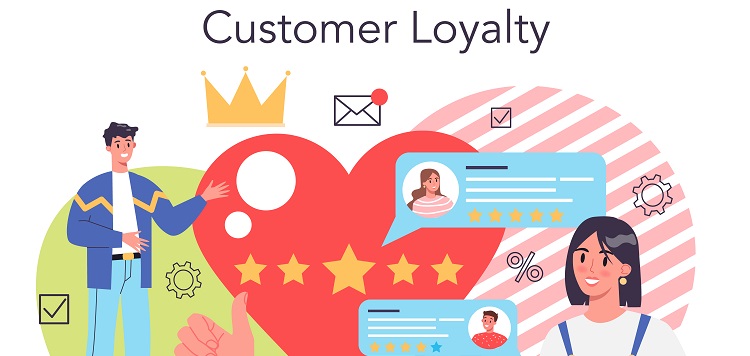In an increasingly competitive market, building customer loyalty has become more important than ever before. Studies have shown that acquiring new customers can cost up to five times more than retaining an existing one. Therefore, businesses must focus on customer retention and loyalty to gain a competitive edge. In this article, we will discuss the formula and strategies for building customer loyalty.
The Importance of Building Customer Loyalty
Customer loyalty is the backbone of any successful business. Loyal customers are not only more likely to make repeat purchases, but also recommend the business to their friends and family. This results in increased customer lifetime value and higher profits. Moreover, loyal customers are more likely to forgive the business in case of any mishaps, which leads to positive reviews and an improved reputation.
The Formula for Building Loyalty
While there is no one definitive formula for building customer loyalty, there are some common tactics that have proven to be effective. These tactics may include offering exceptional customer service, providing high-quality products and services, rewarding loyalty, building communities and creating positive brand experiences. However, the formula for building customer loyalty may vary depending on the industry, target audience, and business goals.
Putting the Customers First
One of the most effective ways to build customer loyalty is by putting the customers first. This means understanding their needs, preferences, and pain points, and then creating products and services that cater to those needs. It also involves providing exceptional customer service and creating a positive customer experience at every touchpoint.
Offering Efficient Support Systems
If you want to retain customers, you must have an efficient support system in place. This involves providing quick and effective solutions to customer queries and problems. It also means making the support channels easily accessible and responsive. By offering exceptional support, businesses can improve customer satisfaction and build loyalty.
Utilizing Social Media for Customer Assistance
Social media has become an essential part of customer service. By using social media, businesses can offer quick and personalized assistance to customers. This can help in resolving complaints and improving customer satisfaction. Social media platforms can also be used to create communities, offer promotions, and engage with customers.
Building Loyalty Through Communities
Communities are great for building loyalty. By creating and nurturing communities of like-minded customers, businesses can foster emotional connections with their customers and improve their loyalty. Communities can be created online or offline, depending on the nature of the business. They can also be used to offer exclusive promotions, rewards, and events to loyal customers.
The Power of Word of Mouth Marketing
Word of mouth is still considered to be the best marketing channel out there. Satisfied customers are more likely to recommend the business to their friends and family. By providing exceptional service, offering high-quality products, and creating positive brand experiences, businesses can encourage customers to become brand advocates. These brand advocates don’t just promote your brand, but also save your marketing money on constant brand awareness campaigns.
Providing an Interactive and Fun Experience for Customers
If you provide an interactive and fun experience for your customers, then, of course, they’ll be inclined to say positive things about your product and your brand. This includes creating unique marketing campaigns, offering personalized experiences, and using gamification techniques. By focusing on creating an enjoyable experience for customers, businesses can increase customer satisfaction and build loyalty.
The Benefits of Brand Advocates
Brand advocates are customers who promote your business and refer others to your brand. They play a critical role in building customer loyalty. By creating a positive reputation and demonstrating loyalty, brand advocates can help to attract new customers and retain existing ones. They also save on marketing expenses by acting as ambassadors for the brand.
Offering Relevant Value at the Right Time
Offering relevant value at the right time and to the right consumer is another effective strategy for building customer loyalty. This involves understanding your customers’ needs and preferences, and then offering relevant promotions, deals, and rewards that match their interests. By doing this, businesses can encourage repeat purchases and improve customer lifetime value.
The Limitations of Buying Loyalty through Ad Campaigns
It’s important to remember that loyalty can’t be bought by running ad campaigns. While advertising may help in attracting new customers, it’s not a sustainable strategy for building customer loyalty. Customers today are looking for authenticity, transparency, and value. By focusing on delivering exceptional experiences, businesses can build customer loyalty that lasts.
Building customer loyalty is a continuous process that requires time, effort, and resources. By focusing on the customer, delivering exceptional service, and creating positive brand experiences, businesses can improve customer satisfaction and retention. By implementing the tactics mentioned in this article, businesses can build long-lasting customer loyalty.

